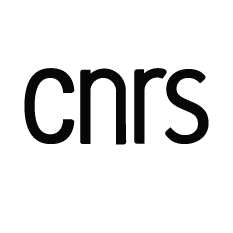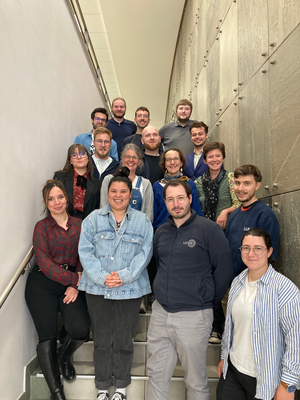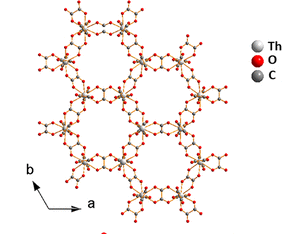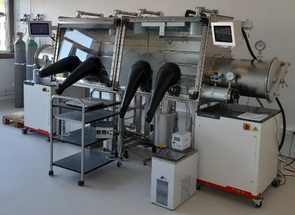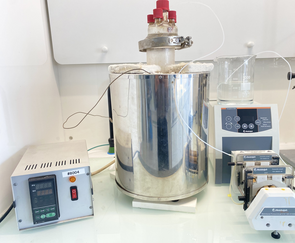Chemistry, materials and processes for a sustainable nuclear development
Team leader: Pr Murielle Rivenet
Associate team leader : Dr Marie Colmont
Team leader foreword
The activities of the CIMEND team (Chemistry, Materials and Processes for Sustainable Nuclear Energy) combine complementary skills in solid state chemistry, actinide chemistry and molten salt chemistry, with a shared vision among its members of organising research into collaborative projects. Committed to helping produce sustainable electricity, the team has historically focused on nuclear-related applications: improving recycling processes, manufacturing optimised fuels and recovering by-products. It is currently extending its field of application to the recycling of energy materials (permanent magnets, cathode materials for lithium batteries and fuel cells). Projects draw on the team's expertise in crystal growth, solid synthesis and advanced characterisation, with the aim of improving industrial processes while maintaining a balance between academic and applied research.
Murielle Rivenet, Professor at Centrale Lille Institut - ENSCL
Themes
Chemistry of actinides and lanthanides
-
Exploration of chemical systems based on actinides (U, Th) and lanthanides, used as surrogates of highly radioactive elements (Pu, Am), with the aim to (i) recycle valuable materials and find uses for the by-products (ii) synthesize nuclear fuels for generation III and IV reactors.
-
Solid syntheses by means of using various routes (ceramic, precipitation, hydro- and solvothermal or solid-gas reaction), under controlled atmosphere, in laboratories dedicated to the handling of radionuclides (more than 110m2 of working area).
-
Study of the influence of operating conditions on the structural and microstructural properties of powders.
-
Crystal growth in systems of interest to the nuclear industry (oxalates, peroxides, molybdates, chlorides, etc.).
-
In-depth characterisation of solids (DRX on powders and single crystals at ambient or high and low temperatures, SEM, TEM, IR, RAMAN and NMR spectroscopies, thermal analyses (ATG, ATD, DSC, mass spectroscopy) and elemental analyses (EDS, X-ray fluorescence), DVS, etc.).
-
Transposition of plutonium tests in partnership with CEA Marcoule or JRC Karlsruhe.
Chemistry of molten salts
-
Study of the reactivity of molten salts (carbonates, hydroxides, chlorides, sulphates, nitrates, etc.) for waste treatment, material recycling or to support the understanding of reaction mechanisms occurring in contact to metals.
-
Crystal growth and structural determination of compounds able to forms at the interfaces, due to metal corrosion, or into nuclear salts, due to their evolution.
-
Development of methods for characterising salts in a controlled atmosphere (XRD sample holder, DSC) and under heat (electrochemical measurements, high-temperature Raman spectroscopy).
-
Experimental work in glove boxes under a neutral and anhydrous atmosphere.
Team members
| Name | Function | Employer |
|---|---|---|
| Francis Abraham | Professor emeritus | Univ. Lille |
| Marie Colmont | Assistant Professor | Centrale Lille |
| Bertrand Morel | PAST | Centrale Lille |
| Claire Lavalette | Researcher | ORANO |
| Catherine Renard | Assistant Professor | Centrale Lille |
| Murielle Rivenet | Professor | Centrale Lille |
| Caroline Pirovano | Assistant Professor | Centrale Lille |
